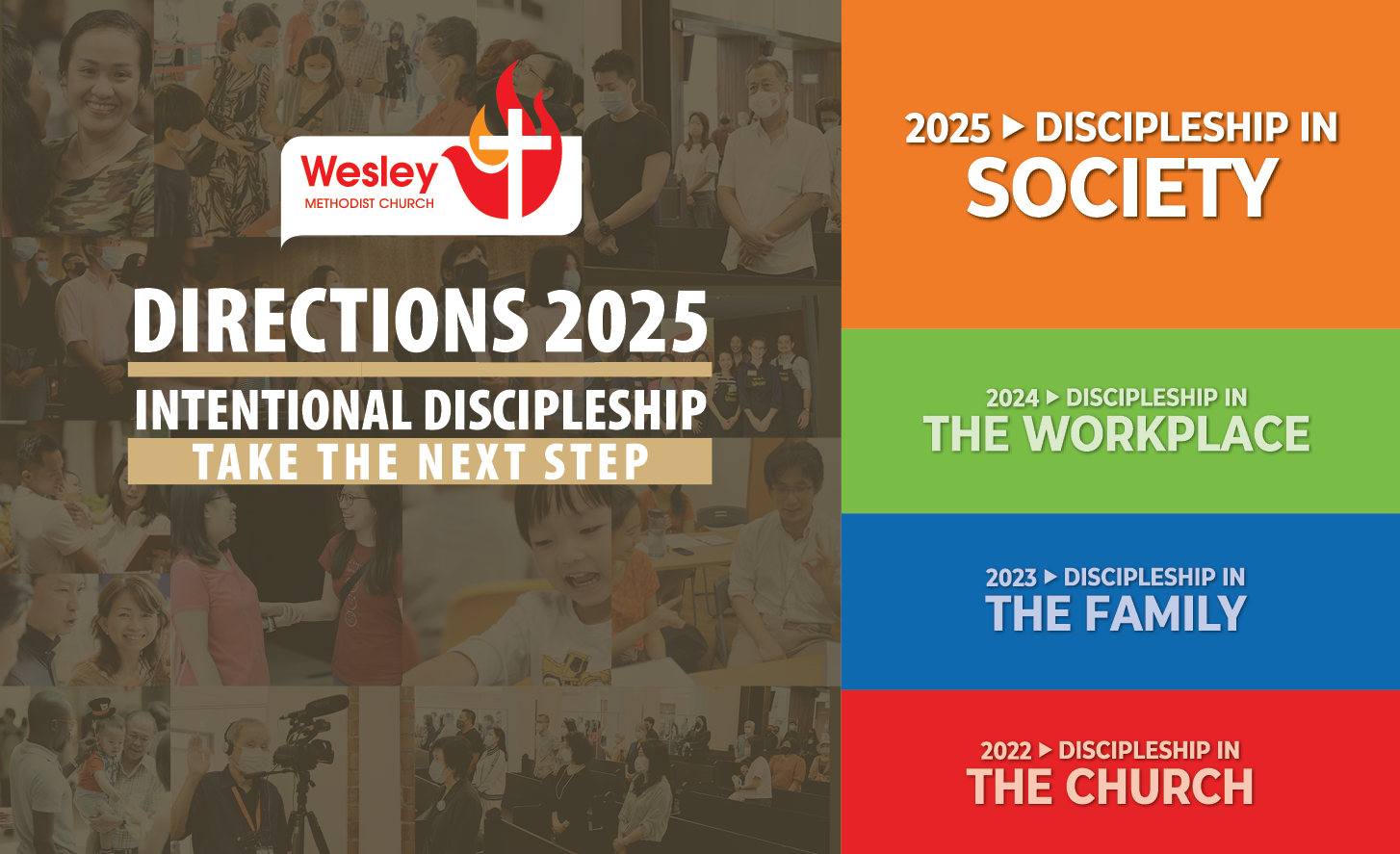When I started out in pastoral ministry as a single person and had more control over my time, I remember heeding the advice of many senior clergy to jealously guard my Sabbath—to make sure I observed one full day of the week where I did not engage in any church work. Every Thursday, I shut down my laptop, silenced my notifications and made plans to have a nice meal followed by a movie, to ensure that I was “recharged” for the week ahead. This practice of disengaging from work once a week was healthy, but it also brought about a sense of guilt—could I not be doing more? Am I being lazy? Am I being responsible enough with the time and work God has charged me with?
But more than wrestling with the gnawing sense of responsibility, I eventually came to terms with the difficulty of maintaining such a routine as I grew older. A decade later, I am no longer simply a pastor, but a husband, and a father of two young children. Right now, the thought of having a nice meal and a movie by myself is a luxury—one that I would be fortunate to have even just once a year. Such is the reality many of us face as we continue down the road of life.

There are two reasons why I share my struggles in observing the Sabbath. Firstly, I have come to realise that finding rest is not simple—even though stopping from our daily work is a helpful discipline, that alone cannot offer us the rest we need. There is a kind of work beyond our daily work that we need to find rest from. Secondly, the Sabbath command can feel pointless or even frustrating when we feel like we are unable to recuperate even when we are away from work. Sometimes the life stage we are in might not allow for frequent personal recreation. As the popular parenting meme goes, “I’m not an early bird or a night owl. I’m some form of permanently exhausted pigeon.” Fortunately, I believe Genesis 1–2 has good news for those of us with such struggles concerning the Sabbath.

Learning to say, “It is good.”
“God saw everything that he had made, and indeed, it was very good. And there was evening and there was morning, the sixth day.
Thus the heavens and the earth were finished, and all their multitude. And on the seventh day God finished the work that he had done, and he rested (lit. stopped) on the seventh day from all the work that he had done. So God blessed the seventh day and hallowed it, because on it God rested (lit. stopped) from all the work that he had done in creation.” – Genesis 1:31–2:3 (NRSV)
There is a repeated refrain on each day, after the acts of creation in Genesis 1; six times we are told that God sees that what He had made is good, and on the seventh time it is said to be very good. What strikes me about this is how foreign a concept it is to our culture of work in Singapore. We have this innate sense that things can always be better; there is always room for improvement such that we find it impossible to say “it is good” regarding anything that we do. Thus, we live with a perpetual sense that our work is never finished. However, the text tells us that the completion of the work is the reason why God stops (שבת ‘shabbat’ twice in 2:2–3). He ceases from his work because he has already declared it as good and that it is finished (כלה ‘kalah’ twice in 2:1–2). What this means is that when God tells His people to observe the Sabbath, it is an invitation for us to do the same. God invites us to look at our finished work and say, “it is good.”
There is a simple liturgy that my wife does with me after I am done preaching on Sundays. This came about because we realised that though I am at home and supposed to be with the family, it is incredibly hard for me to stop thinking about the sermon even after the fact. I often find myself playing it out in my head repeatedly, thinking about what went well and what I could have been clearer about—this was the work beyond the work. So, to get me to stop, Michele will grab me by the face, ask me to raise both my hands with palms open, and repeat the phrase, “it is good.” Then she would say, “No ifs, no buts.” With open hands I offer my work to God as finished and good because it is what He is inviting me to do.

Connecting our work to our true master
“The LORD God took the human and put (lit. rested) him in the garden of Eden to work it and to keep it.” – Genesis 2:15
Genesis 2:15 is the first place where we see the human engage in work, and what is fascinating is that it comes accompanied with the word ‘rest’. Unfortunately, our English translations render it as ‘put’ (in line with 2:8), but the Hebrew verb used here means ‘to rest’ or ‘to settle in’. Thus, there is an interesting juxtaposition in this verse in that the human is rested in the garden for the purpose of working there. This is important for us to recognise because we do not often think of our places of work as one where we rest in, but that is precisely the ideal in God’s good creation. Most of us (me included) think of ourselves as appliances that require a ‘recharge’ on the Sabbath so that we might operate the rest of the week, often drawing down to our reserves before needing to be replenished a week later (or perhaps by the occasional holiday). But what if we thought about ourselves as appliances that are perpetually plugged into a power supply? Most of us can think of something laborious that we love to do that does not feel like work to us; we often call these hobbies. What if we could recover an aspect of that in our daily work? Even in some limited way? What if the work we do could feel far less depleting? I would like to suggest that the only way we can accomplish this is by connecting our work to our Master.

Now, please do not get me wrong; this is by no means a reason for us to neglect the Sabbath. In fact, I believe we need the Sabbath precisely for the reason of connecting our work to God; to bring it before Him, to talk to Him about it. The Sabbath must become a time for God to speak to us about our work—to transform our perspectives regarding it. We ignore it at the cost of more drudgery in our outlook. But more than that, we also need to learn how we can inject Sabbath time into our work1 by creating pockets of time for ourselves to seek Him throughout the workday. After all, our God is the one who says to us, “six days you shall labour and do all your work” (Exo 20:9) but also, “my yoke is easy, and my burden is light.” (Matt 11:30)
“You have made us for yourself, and our heart is restless until it rests in you.”
– St. Augustine, Confessions.
1Something suggested by Timothy Keller in his sermon, “Work and Rest”.







